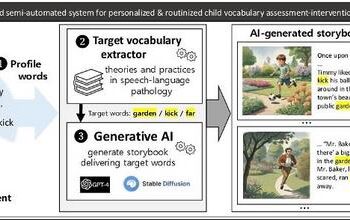There are 62.5 million internally displaced persons worldwide, according to 2022 data by the UNHCR, the United Nations Refugee Agency. These individuals were forced to leave their homes but remain in the same country.
There are 62.5 million internally displaced persons worldwide, according to 2022 data by the UNHCR, the United Nations Refugee Agency. These individuals were forced to leave their homes but remain in the same country.
Prior research has shown that internally displaced persons often experience prejudice and discrimination, as residents in their new locale fear that the migrants may be insurgents or criminals, or compete for jobs.
Now, a new Dartmouth study involving Afghanistan indicates that changing such attitudes is an uphill battle. Given the decades of fighting there, Afghanistan has had one of the largest populations of internally displaced persons, with some 6.6 million internally displaced Afghans in 2022, according to the Internal Displacement Monitoring Centre.
The new study, published in the American Journal of Political Science, found that locals’ attitudes toward migrants did not change after prolonged contact through a vocational training program in Kandahar, Afghanistan.
“Many NGOs are trying optimistically to reduce prejudice through contact-based programs, but our work shows that these programs alone cannot be successful unless structural changes are also implemented,” says lead author Yang-Yang Zhou, an assistant professor of government at Dartmouth.
Independent of the study, locals often viewed migrants in Kandahar as threats who may be potential Taliban informants or fighters, who would serve as competitors for jobs, housing, and other community resources.
To examine locals’ attitudes about migrants, the researchers teamed up with the global humanitarian nongovernmental organization Mercy Corps in late-2015 to 2016, which was administering a vocational training program called INVEST for over 2,500 locals and migrants in Kandahar.
The study was randomized so that there was a treatment group of participants who received the training, and a control group who were put on a waiting list and would receive the training at a later date.
Courses in tailoring, plumbing, carpentry, and computer software skills were offered at four vocational training centers. Participants were provided bus services from their homes to the center to help keep them safe. Both men and women participated in the training, although the classes were separated by gender. Importantly for this study, classes included a mix of both locals and migrants.
They met five days a week, six hours a day for either three or six months and received cash transfers in exchange for their participation.
Within the classes, the students worked as a team, as there were no reports of self-segregation or negative traumatic experiences within the class. And if there was any violence happening near a center, the program was paused.
There was no curriculum for the study, as the researchers wanted to determine if locals’ prejudice against migrants could be reduced through interpersonal contact in the vocational training program. They were testing if psychologist Gordon Allport’s “contact theory” would hold true in this context.
The locals were surveyed three times—before the program started, after the program ended, and again eight months later—on how often they interact with migrants, and whether they thought migrants were good for the community, more likely to support violence than locals, likely to take away jobs from native residents, and if they would become a burden on government resources.
At baseline, half of the locals had never interacted with migrants before they had participated in INVEST.
The survey results showed that people really enjoyed the program and wished that it had run longer. Yet, the results from the end of the program, and eight months later showed that locals did not change their attitudes toward migrants even after prolonged contact.
“Our study participants spent up to six months with each other making it one of the longest, if not the longest contact intervention, that has ever been studied,” says co-author Jason Lyall, the James Wright Chair in Transnational Studies, director of the Political Violence FieldLab at the Dickey Center for International Understanding, and an associate professor of government at Dartmouth. “The data shows how very difficult it is to change peoples’ attitudes, especially during a wartime setting.”
Contact-based programs by NGOs can help promote peace, tolerance, and understanding. But in war zones, the researchers say that establishing resettlement patterns for migrants that no longer geographically segregates them from the rest of the community in refugee camps or settlements, and other structural changes, may be the key to reducing locals’ prejudice and fears of migrants.
“Opportunities need to be created for migrants and locals to have direct and meaningful contact with each other in their everyday environment rather than isolating migrants from other residents,” says Zhou.
Zhou (yang-yang.zhou@dartmouth.edu) and Lyall (jason.lyall@dartmouth.edu) are available for comment.
###
Journal
American Journal of Political Science
Method of Research
Survey
Subject of Research
People
Article Title
Prolonged contact does not reshape locals’ attitudes toward migrants in wartime settings
Article Publication Date
24-Apr-2024
Discover more from Science
Subscribe to get the latest posts sent to your email.



